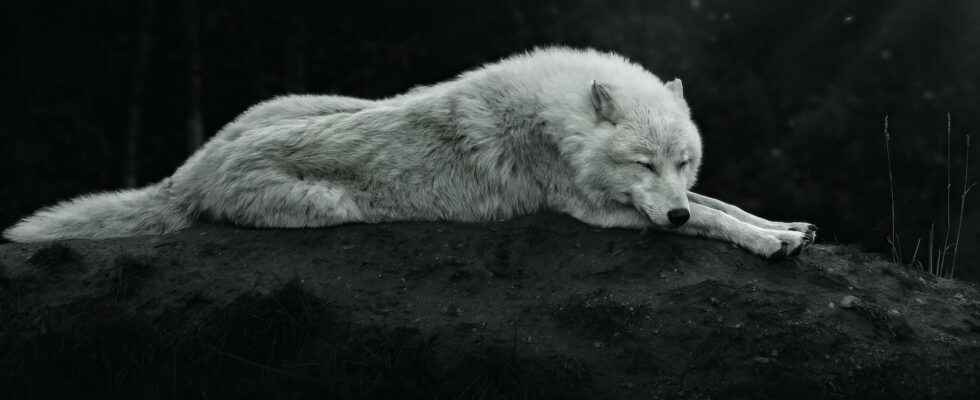Our “Beasts of Science” column is like a collection of stories. Beautiful stories that tell the living in all its freshness. But also in all its complexity. A parenthesis to marvel at the treasures of the world. For this new episode, let’s look at an animal that has a rather bad reputation: the wolf.
The wolf. The least we can say is that its reputation is not the best. It is described as shamelessly attacking herds. He sometimes passes for a man-eater. But the reality is quite different. The wolf is in fact a discreet animal. Fearful, even. Without much connection with the big bad wolf which is told in children’s stories. Stories which we forget a little too easily today, the colorful side. Stories in which the real big bad is not necessarily the one we believe…
Do you know that the wolf has even shown, over time, that he is gifted with a certain intelligence? He would thus be able to carry out concrete reflections, to anticipate the consequences of an action and to understand the relationships of cause and effect surprisingly well. Better, even, than our friend the dog. And it’s not nothing.
To learn a little more about this legendary animal, ethologists looked into its sleep . History to better understand, by comparison with what we know of the nights of our dogs, what effects domestication – or in this case, thelack of domestication— can have on how an animal sleeps. You should also know that researchers believe that sleep has played an important role in the evolution of human intelligence. Sleeping better — understanding more deeply — even if it’s less time, would have favored our memory and made it possible to develop our brain . And also leave more time available for learning and transmitting knowledge and cultures.
A surprisingly deep sleep
But how to interfere in the dreams of the wolf? Researchers know that there is only one real solution: the electroencephalogram. Ask some electrodeson a wolf’s head to measure its brain activity while sleeping . Are you having trouble imagining the situation? This is, however, what ethologists have done.
They first armed themselves with patience. Because before subjecting the wolves to their experiments, they raised and socialized them from an early age. In such a way as to be able to handle them without causing them fear. And they finally got their way. With a result that surprised them.
Time to deep sleep — the one that scientists call the paradoxical sleep— appears longer in wolves than in our dog friends. With an even more marked difference when the animals get older. Why did this surprise researchers? Because, remember what we were saying, better sleep is associated with neurological development, less stress, to memory consolidation. But also to domestication. Because in principle, a domestic animal sleeps in a protected environment which allows letting go of the deep sleep.
Thus, if the wolf is not so stupid, it may well be thanks – at least in part – to the quality of his nights. But ethologists recognize that they still have to validate this hypothesis by studying a larger number of individuals. Because so far, only seven wolves have passed through their hands. And it’s a fair bit to draw definitive conclusions.
Interested in what you just read?
